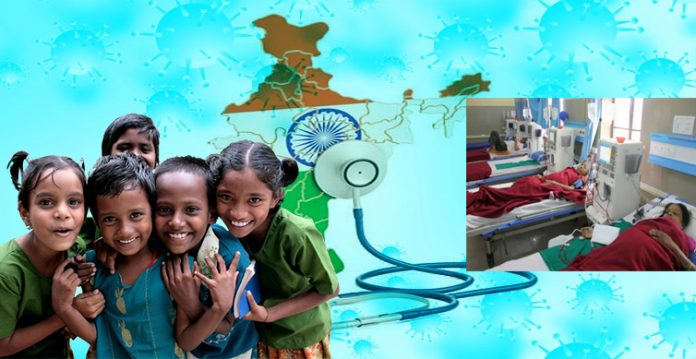New Delhi: $2 billion out of $20.6 billion philanthropy funds for 2020-2021 were pledged by India to further strengthen all degrees of care in a reply to the COVID-19 pandemic and to guarantee fundamental public health functions with an increased focus on children, adolescents and women and the most vulnerable.
The commitments were originated on Friday at “Lives in the Balance”, a global online summit to see how COVID-19 is affecting the advancement towards Universal Health Coverage.
The pandemic is threatening thirty years of improvement in health and social services for children, new-borns, adolescents, and women.
The well-being of this vulnerable group is being more impacted than others because of disruptions to essential health, nourishment, and social services since the pandemic, as per senior health specialists at The Partnership for Maternal, New-born and Child Health (PMNCH), a global alliance of over 1,000 associations, hosted by the World Health Organization (WHO).
In a big effort to re-establish crumbling services for children, new-borns, adolescents, and women, a group of high-income, low- and middle-income countries and foundations are making pledges of $20.6 billion to provide protection to this group.
$6.6 billion (32 percent) of the complete pledge is from money committed by low and middle-income nations themselves, including Afghanistan, Kenya, India, Nigeria, and Liberia.
An additional $14 billion (68 percent) is from official development assistance and grants provided by Germany, Sweden, Canada, the US, the UK, and the Bill and Melinda Gates Foundation.
Recent WHO information from 105 nations reveals that 90% of nations have encountered disruptions to health services, with low-and middle-income nations reporting the biggest challenges.
Few of the most frequently disrupted services include those related to immunization services (facility-based services: 61 percent and outreach facilities: 70 percent,) and family planning and contraception services: 68 percent.
The maternal mortality ratio has declined by 38 percent worldwide somewhere between 2000 and 2017. Still, around 25,000 women were dying each month during and following pregnancy and childbirth, in 2017. Similarly, while the mortality rate for children below five years old has been cut by 60 percent since 1990, around 5.2 million kids below five were dying each year from preventable causes before the pandemic.
As per early estimates of the indirect effect of COVID-19 on child and maternal mortality, more than two million additional child and maternal deaths are assessed over 12 months (2020-2021) on top of the pre-pandemic level due to disruptions to fundamental health and nutrition services.
PMNCH has given a seven-point Call to Action because of the staggering impacts of COVID-19 on the health and wellbeing of children, adolescents, and women.
It approaches leaders to protect and prioritize their rights and wellbeing during the COVID-19 response and recovery by strengthening political commitment, policies, and financing for essential wellbeing services and social protection, especially for the most vulnerable.
source: with input from ians


